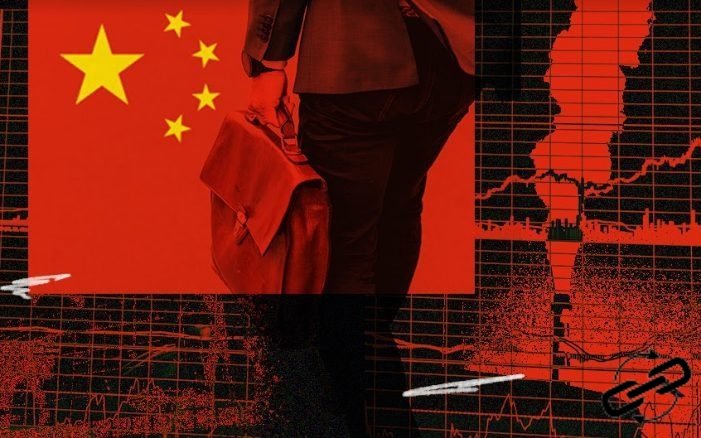In a dramatic escalation of geopolitical tensions, China has accused the United Kingdom’s Secret Intelligence Service, commonly known as MI6, of attempting to recruit Chinese state workers as spies. This allegation has added complexity to the strained relationship between the two countries, fueling mutual distrust and raising concerns about the broader implications for international diplomacy and security.
The Accusations Unveiled
The Chinese government made the accusations public through a statement released by its Ministry of State Security (MSS). According to the statement, MI6 has been actively trying to recruit Chinese nationals employed in sensitive sectors, including government ministries, scientific research institutions, and major state-owned enterprises. The MSS claimed that these recruitment efforts were part of a broader strategy by the UK to gather intelligence on China’s political, economic, and technological advancements.
The statement outlined several alleged methods used by MI6 to approach potential recruits. These included targeting Chinese nationals studying or working abroad, exploiting personal vulnerabilities such as financial difficulties or ideological differences, and promising lucrative rewards or safe passage to Western countries in exchange for cooperation. The MSS emphasized that these actions violate international norms and pose a significant threat to China’s national security.
Reactions from China
The accusations have sparked a flurry of responses within China. Government officials have condemned the alleged actions of MI6, describing them as “blatant acts of espionage” that undermine trust and cooperation between nations. Chinese state media outlets have echoed these sentiments, running detailed reports on the accusations and calling for increased vigilance against foreign intelligence activities.
Public reaction has been mixed, with some Chinese citizens expressing outrage over the alleged espionage activities, while others view the accusations with skepticism, questioning the timing and motivations behind the government’s announcement. Nevertheless, the prevailing sentiment is one of heightened awareness and concern over national security threats.
The UK’s Response
The UK government, for its part, has categorically denied the accusations. In a statement issued by the Foreign Office, officials dismissed the allegations as “unsubstantiated and politically motivated.” The UK emphasized its commitment to international norms and the importance of maintaining constructive diplomatic relations with China.
British media have also weighed in on the issue, with some analysts suggesting that the accusations are part of a broader strategy by China to deflect attention from its own intelligence activities and to rally domestic support by portraying foreign threats. Others caution that the situation could further deteriorate the already fragile relationship between the two countries, impacting trade, investment, and cooperation on global issues such as climate change and counterterrorism.
Espionage: A Historical Context
Espionage has long been a tool of statecraft, with countries engaging in intelligence gathering to safeguard their interests and gain strategic advantages. The history of espionage between China and Western countries is fraught with incidents that have fueled mutual suspicion and tension.
During the Cold War, espionage activities were rampant, with both sides seeking to infiltrate each other’s governments and military establishments. In recent decades, the focus has shifted to economic and technological espionage, as nations strive to gain an edge in an increasingly competitive global landscape.
China has frequently been accused of conducting extensive cyber-espionage campaigns aimed at stealing intellectual property and sensitive information from Western companies and governments. These accusations have led to numerous diplomatic clashes and have influenced cybersecurity policies worldwide.
Implications for International Relations
The recent accusations by China against MI6 come at a time of heightened geopolitical rivalry and shifting alliances. The US-China trade war, the rise of China as a global superpower, and the UK’s post-Brexit realignment have all contributed to a complex and volatile international environment.
For China, the accusations serve multiple purposes. Domestically, they reinforce the narrative of foreign threats and justify increased security measures. Internationally, they signal to other countries the risks of engaging in intelligence activities against China. The accusations also aim to discredit the UK, portraying it as an aggressor in the realm of espionage.
For the UK, the accusations pose a significant challenge. They strain diplomatic relations with China, a key trading partner, and complicate efforts to navigate a post-Brexit foreign policy landscape. The UK must balance its national security interests with the need to maintain economic ties and cooperation on global issues.
The Broader Impact on Espionage and Cybersecurity
The allegations against MI6 highlight the evolving nature of espionage in the digital age. Traditional methods of human intelligence gathering are now complemented by sophisticated cyber-espionage techniques. Nations are increasingly investing in cyber capabilities to protect their assets and gain intelligence on adversaries.
This shift has profound implications for global cybersecurity. Governments and private sector entities must enhance their defenses against both traditional and cyber espionage threats. The development of robust cybersecurity frameworks, international cooperation, and adherence to norms of behavior in cyberspace are critical to mitigating these risks.
Moving Forward: Diplomacy and Security
The accusations of espionage between China and the UK underscore the need for careful diplomatic management and robust security measures. Both countries must navigate this sensitive issue with a focus on maintaining stability and preventing further escalation.
Diplomatic channels should be utilized to address and resolve the accusations, fostering dialogue and transparency. Trust-building measures, such as intelligence-sharing agreements and cybersecurity cooperation, can help mitigate the risks of espionage and enhance mutual security.
At the same time, governments must invest in advanced security technologies and strategies to protect their interests. This includes enhancing cyber defenses, conducting thorough background checks on employees in sensitive sectors, and fostering a culture of security awareness.
Conclusion
The allegations by China that MI6 is recruiting Chinese state workers as spies have intensified an already complex and tense relationship between the two nations. As both sides navigate this sensitive issue, the broader implications for international relations, cybersecurity, and global stability are profound. The situation calls for a careful balance of diplomacy, security, and cooperation to ensure that the challenges of espionage and cyber threats are effectively managed.


